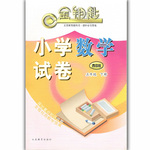题目内容
Once upon a time there lived an old man in a nice cottage with a large garden. The old man was seen 41 his flowers all the time. They were so well-tended that every passer-by could not but 42 for a glance.
One day a young man went by the garden. He gazed at the splendid garden, lost in admiration at the beauty of the scenery. Then, suddenly he 43 the old gardener was blind. 44 , the young man asked, “Why are you busy tending these flowers every day which you can’t 45 in fact?” The old man smiled and answered that “ I can tell you 46 reasons. First I was a 47 when I was young, and I really like this job. Second, although I can’t see these flowers, yet I can 48 them. Third,I can smell sweetness of them. As to the last one, that’s 49 .
“Me? But you don’t know me,” responded the young man 50 .
“Yeah, it’s 51 that I don’t know you. But I know everyone knows flowers and would never turn them down. I know the beauty of my garden will get many people into a good mood(心情). In the meantime, it also 52 a chance to me to have a word with you here and to enjoy the happiness these flowers have brought us.”
The old man’s 53 astonished me. The blind man grows flowers and serves them as a link of minds so as to make everybody enjoy the sunshine in spring. Isn’t it one kind of happiness?
I believe every flower has 54 with which they can see the kindness of the man’s heart. The blind man grows flowers in his heart. Though 55 to see the beauty of blossoming, he surely can hear the voice of it, I suppose.
1. A.loving B.watering C.tending D.planting
2. A.stop B.stay C.live D.run
3. A.realized B.noticed C.felt D.thought
4. A.Excited B.Frightened C.Shocked D.Satisfied
5. A.feel B.see C.hear D.eat
6. A.one B.two C.three D.four
7. A.gardener B.teacher C.farmer D.painter
8. A.taste B.plant C.touch D.appreciate
9. A.it B.me C.them D.you
10. A.with pleasure B.in surprise C.with hope D.in anger
11. A.true B.possible C.a pity D.a shame
12. A.introduces B.offers C.stands D.leaves
13. A.words B.behavior C.story D.attitudes
14. A.ears B.soul C.eyes D.heart
15. A.refusing B.trying C.pretending D.failing
1.C
2.A
3.B
4.C
5.B
6.D
7.A
8.C
9.D
10.B
11.A
12.B
13.A
14.C
15.D
【解析】
试题分析:文章讲述一个老花匠虽然是瞎子,但老人每天都在照料他的花,为了自己更是为了别人。
1.考查动词:A. loving爱 B. watering浇水C. tending 照顾D. planting种植,有人看见老人每天都在照料他的花。选C
2.考查动词:A. stop 停止B. stay停留C. live 生活 D. run跑,每个过路人都会停下来休息。选A
3.考查动词:A. realized意识到B. noticed注意到C. felt感觉D. thought想,突然他注意到老花匠是瞎子。选B
4.考查形容词:A. Excited兴奋B. Frightened害怕C. Shocked 吃惊D. Satisfied满意,从前面的suddenly he 43 the old gardener was blind.可知年轻人很惊讶。选C
5.考查动词:A. feel感觉B. see看见C. hear 听见D. eat吃,你为什么照顾这些你看不见的花。选B
6.考查数词:从下文可知是四个原因。选D
7.考查名词:A. gardener花匠B. teacher老师C. farmer 农民D. painter画家,我年轻的时候就是个花匠。选A
8.考查动词:A. taste品尝B. plant种植C. touch 触摸D. appreciate欣赏,虽然我看不见,但是我能触摸。选C
9.考查代词:从后面的句子:“Me? But you don’t know me,”可知是D. you。选D
10.考查词组:A. with pleasure很乐意B. in surprise惊讶 C. with hope 有希望D. in anger愤怒,年轻人惊讶的说。选B
11.考查词义辨析:A. true真实的 B. possible可能的C. a pity 同情D. a shame羞愧,我不认识你是真的。选A
12.考查动词:A. introduces 介绍B. offers提供 C. stands站D. leaves离开,这也提供个机会让我和你谈话。选B
13.考查名词:A. words话语B. behavior行为 C. story故事D. attitudes态度,他的话让我很惊讶。选A
14.考查名词:A. ears耳朵B. soul 灵魂C. eyes眼睛D. heart心,从后面的which they can see the kindness of the man’s heart. 可知每朵花都有眼镜可以看。选C
15.考查动词:A. refusing拒绝 B. trying尝试 C. pretending假装D. failing失败,虽然看不见开花的美丽,但是一定能听见它的声音。选D
考点:考查故事类短文
点评:本文主要是测试学生综合运用语言的能力,即从语篇的角度综合测试阅读理解能力、词汇的掌握和对英语习惯用语的熟悉程度、以及语法规则的灵活运用。考生做题时必须时刻从上下文考虑,不应该只看到所添的词在短语或句子内是否可行。因此,在做题时最好将全文通读一下,了解了全文的意思以后再作答。

 金钥匙试卷系列答案
金钥匙试卷系列答案